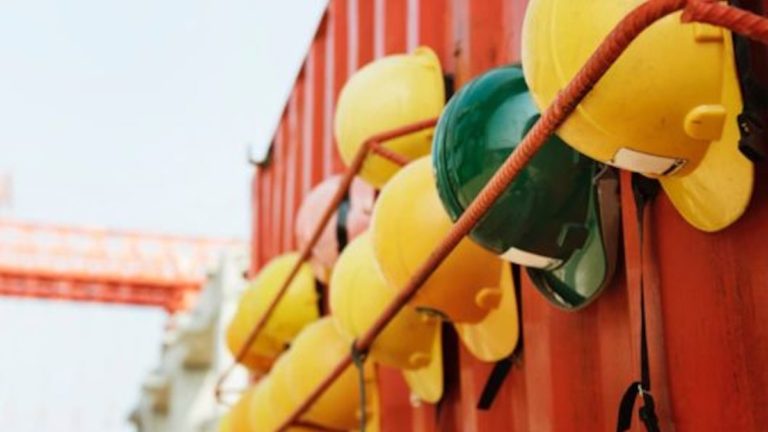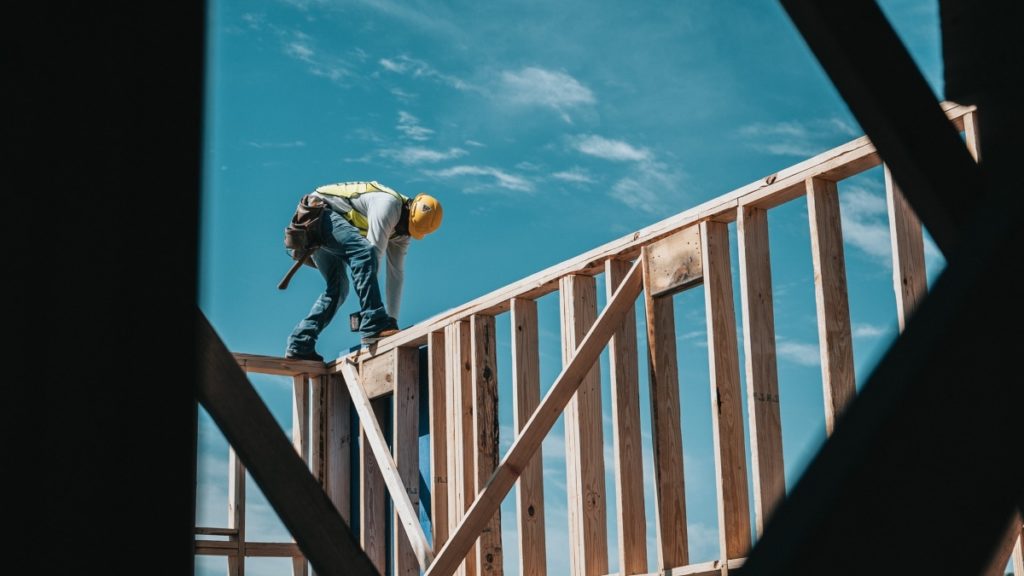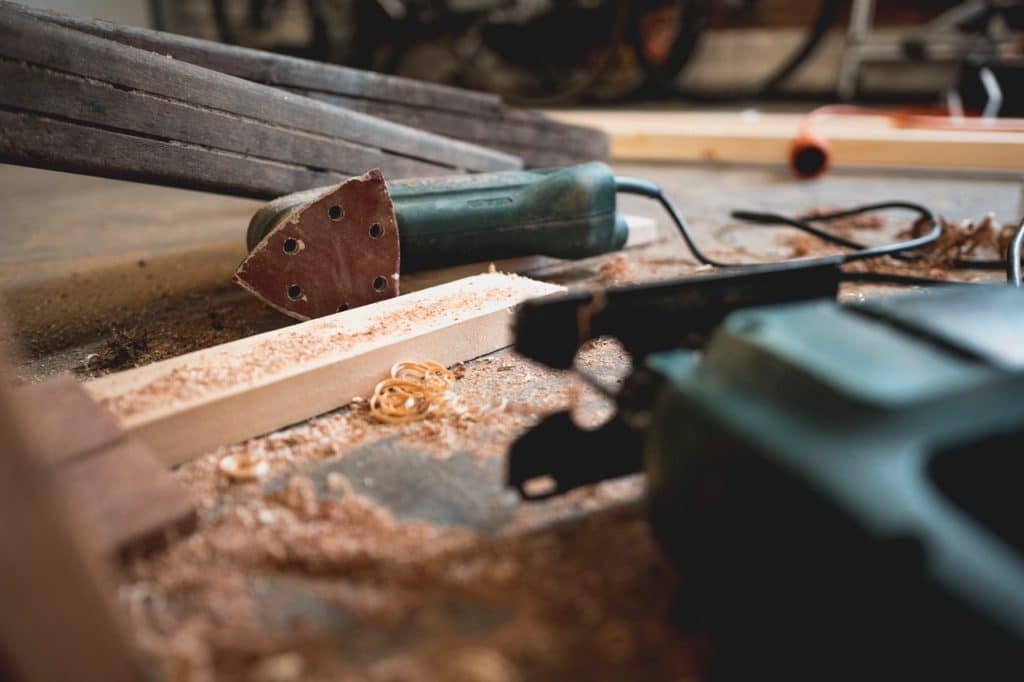
Australia’s construction industry is booming, offering a wealth of opportunities for backpackers and Working Holiday Visa holders. Working in the construction industry has many advantages in Australia. Whether you’re in the bustling city or the serene countryside, construction jobs are plentiful, diverse, and well-paying. Plus, they might even count towards your Second Year visa. Here’s an updated guide on how to navigate this sector.
Table of Contents
Requirements to Work in Construction
The White Card
The White card is a mandatory safety certification for anyone who wants to work on a construction site. The training covers basic safety principles to ensure all workers are equipped to minimize the risks of workplace accidents. It concerns all staff (supervisors, employees, etc.) who work on a site. The White Card certifies that you have followed a training and that you know and apply the safety rules on construction sites. It is recognised throughout Australia.
How to get the White Card?
To get your White Card, you have to complete a course either online or in the classroom. This can take several hours. If you choose to do the course in class, you will need a full day. The course costs between $40 and $100 depending on the states. There is no exam as such, you will need to answer questions. If you do it online, you will have to take a short video interview and show that you have all the necessary equipment to work on a site (Personal Protective Equipment – see below for more info). If you do it in classroom, you will obtain your White Card at the end of the day.
Once obtained, the White Card is recognized in all Australian states and territories and has no validity period. That said, if you do not work in the construction sector for 2 years, you will need to take a course to refresh your knowledge.
To get the White card, you will need to create a USI (Unique Student Identifier) because it is an Australian diploma. The process is free and will take you a few minutes. All you have to do is go to the Australian government.
More information: White Card in Australia – Online Course
Equipment – Personal Protective Equipment (PPE)
Essentials: Invest in a warning jacket, safety boots, a helmet, goggles, and hearing protection.
Purchasing: Find PPE at stores like Bunnings, Kmart, or second-hand in op-shops or online marketplaces.
Additional Licenses and Certifications
Some trades will require other cards, licenses or even permits… Here is a (non-exhaustive) list of some examples of trades and their prerequisites.
Forklift License
Driving a forklift.
There are two types of forklift so two types of license: class LO and class LF.
Period of validity: 5 years
Cost: between $500 and $600.
Scaffolding Permits
Erection and dismantling of scaffolding for construction work.
There are three classes of scaffolding permits: basic, intermediate and advanced.
Traffic Controller License
Ensures traffic of cars (and pedestrians) manually during roadworks, on construction sites, etc.
At least these two skills are required in all Australian states: Control traffic with stop-slow bat (RIIWHS205E) and Implement traffic management plans (RIIWHS302E).
Period of validity: 3 years
Cost: between $200 and $500.
Materials Platform Hoist
Operate a construction hoist to allow materials or goods to be lifted.
There are three types of lifting devices that require a license.
Period of validity: 1 year.
👷♂️ Get discounts for your White Card course
Take advantage of special offers to obtain the white card and work in the construction industry.
Job Opportunities and Salaries
High demand for labor
Australia’s construction industry is experiencing a high demand for labor, partly due to ongoing development projects and a shortage of skilled workers in many areas. This demand covers a range of roles from general laborers to skilled tradespeople such as carpenters, electricians, and plumbers. The variety of work available makes it accessible for individuals with different skill levels and experiences.
Minimum Wage and Employment Terms
One of the biggest draws to the construction sector is the competitive pay. Entry-level positions in construction can offer significantly higher wages compared to other typical backpacker jobs, such as hospitality or retail. This is especially appealing for those looking to maximize their earnings during their stay in Australia.
No matter what job you will be doing in construction, a minimum wage is applicable. Indeed, in Australia, most employees are covered by a modern award. These contain the minimum wage, as well as other terms and conditions, for employees in particular industries and occupations. For construction jobs, the Building and construction General On site Award (MA 000020) applies. When you are hired, remember to ask your employer under what status you are employed. You can be hired on a casual, daily or weekly hire basis.
Your wage will be different depending on your status. For example, casual employees will be paid a casual loading (a higher pay rate for being a casual employee). This is because casuals don’t get paid days off, notice of termination or redundancy pay. To give you an idea of the differences in hourly rates, during the week, the minimum wage (level 1 – without experience in the field), in casual you will get the minimum wage + 25% per hour compared to a person hired weekly.
If you are after making good money, you may want to consider working at night or on weekends, as hourly wages are much higher then (50% more sometimes). Note that if you have a specific skill or training in construction, you will probably depend on another award, with different hourly rates (eg plumber, electrician).
To calculate your minimum wage, you can use this tool from FairWork.

Type of jobs in construction
Labourer (unskilled labour)
Your role is to be available to perform various manual tasks on site. You have to make sure that all craftsmen have got what they need on site. For example, you carry cement bags, bricks, wooden boards, or tools or you fill and carry buckets with water. You will probably also use a few tools such as the jackhammer and do simple tasks, such as isolating. The advantage is that you can make contacts with everyone involved. The disadvantage is that it is a physical work. The wages can be between 25 and 45 AUD per hour, depending on your experience and the level of difficulty of the job (allow $25 to $30 at the start and without experience).
Cleaner
This includes picking up garbage, sweeping, cleaning the construction site and packing hazardous waste and garbage in bags. The Cleaner is responsible for preventing the build-up of dust harmful to lungs on the job site, thus ensuring good working conditions. The advantage is that the physical work is less hard. The disadvantage, however, is that you must always wear a mask to prevent the inhalation of dust. The pay is the same as a labourer’s. At very small construction sites, you can do both jobs at once.
Traffic Controller
The traffic controller sways traffic signs, directs the traffic, and accompanies visitors or passers-by through the construction site. It also it ensures the safety of pedestrians. This is a position that requires a traffic control license. This construction job employs most women because no physical strength is needed and you also get paid well. In addition, companies that want to increase the proportion of women in their workforce prefer women for this position. The advantage is that you don’t have to do any physical work. The disadvantage is that you get bored very quickly and you have to stand around all day, mostly in the sun. Traffic controller are paid better than other unskilled backpackers in the construction industry: between AUD 31 (without experience) and 45 per hour (for experienced workers).
Building painter
Although this profession isn’t the highest paying (earning $23 to $26 per hour), a house painter doesn’t require any specific physical condition or training to start. You can progress by taking courses to earn higher pay. Tasks include surface preparation, wall washing, exterior and interior building painting. The tasks can be diverse but remain tedious if you only tackle large surfaces.
Skilled tradesmen
Electricians, carpenters, plumbers, pavers or other skilled craftsmen usually have high salaries. Contact the company directly, tell them about your qualifications and experience and ask for at least AUD 30-35 per hour.
Working Conditions
Construction work is physically demanding and typically requires working outdoors. Conditions can vary greatly depending on the location and the time of year, with outdoor temperatures possibly affecting comfort on the job. However, the physical nature of the work can be a good fit for those who prefer active jobs and enjoy working with their hands.

Finding a Job in Construction
Employment agencies
The registration process is usually free and fast, either online or in person. Usually you will need to complete some forms online first before meeting someone in an agency. To register, you will need your passport, your TFN and the White Card. Some jobs require experience, others specialise in inexperienced workers.
Some agencies are present all over the country (Hays for example). You can also try with Labour Solutions Australia or Skill Hire and FT Workforce (agencies in Sydney and Melbourne).
Online Platforms
Gumtree is a good website to start with. Post a local ad in the “Jobs” category and indicate that you are looking for a construction job. Mention all your strengths (good English skills, fitness, white card, previous experiences, etc.). Your experience in the construction industry should be in the title of the ad. Then check every day if any new job offers have come up.
You can also consult job search engines such as Seek or Indeed. Go to the ‘construction’ category and choose a subcategory if this applies to your experience.
Word of Mouth
Word of mouth is also a great method. Ask everyone you know in Australia if they have any contacts in construction. Don’t hesitate to talk to the people in your hostel who work in the construction industry. And, as some Australians tend to say, “the best way to find a job is to go to the pub”.
Social Media
Social networks like Facebook can be a great option to find a job. Join groups such as “Backpackers in Sydney”, “Australia backpackers jobs”, “construction jobs in Australia”. There are constantly new job offers. But you have to be quick and check the groups every day to see if something new has popped up. Positions are quickly filled.
Working in construction on a Working Holiday Visa (subclasses 417 & 462)
Can I do all the jobs in this sector?
If you want to work in the construction industry during your WHV, it is entirely possible. However, you will need to obtain the White Card (see start of article).
In any case, you’ll need to speak a minimum of English to understand the safety instructions and rules applied on site. The building trades are open to both men and women. There are many women working as traffic controllers in Australia.
If you’re aiming for a particular job, then you’ll probably need to take a training course, such as forklift driver or traffic controller.
In any case, you should know that all construction jobs are open to you. Of course, this will depend on your training and previous experience. For example, you won’t be able to apply for a job as an electrician if you haven’t had any training in this field – logical!
Renewing your Working Holiday Visa
You should know that if you are on a WHV (subclasses 417 & 462) and you decide to work in the construction industry, your working days will count towards renewing your visa (2nd and 3rd year). However, be careful, as not all construction jobs are eligible for renewal. Here is the list of eligible sectors (taken from the immigration website):
- Residential building construction
- Non-residential building construction
- Heavy and civil engineering construction
- Land development and site preparation services
- Building structure services
- Building installation / completion services
- Other construction services
For your days to count, make sure that the postcode where you work is eligible. Please note that for 462 visa holders, construction work is eligible if done in northern Australia and other specified areas of regional Australia.
To read as well: Eligible jobs for your second and third visa
Trades in demand in the construction industry
Australia relies on skilled foreign workers in many trades. This is particularly true in the construction sector. Several trades are therefore on the lists for long-term immigration.
These include the Medium and Long-term Strategic Skills List (MLTSSL), the Short-term Skilled Occupation List (STSOL), the Regional Occupation List (ROL) or the Regional Sponsored Migration Scheme (RSMS) ROL List.
So if you want to immigrate to Australia, here are the occupations that could qualify you for a long-term visa in the construction sector.
| In demand qualifications | ANZSCO Code | List |
|---|---|---|
| Wall and floor tiler | 333411 | MLTSSL |
| Roof tiler | 333311 | STSOL |
| Cabinet maker | 394111 | MLTSSL |
| Electrician | 341111 | MLTSSL |
| Electrical Engineer | 233311 | MLTSSL |
| Brick layer | 331111 | MLTSSL |
| Lift mechanic | 341113 | MLTSSL |
| Carpenter – Joiner | 331212 – 331211 | MLTSSL |
| Painting trades worker | 332211 | MLTSSL |
| Fibrous plasterer | 333211 | MLTSSL |
| Drainer | 334113 | MLTSSL |
| Locksmith | 323313 | MLTSSL |
| Stonemason | 331112 | MLTSSL |
| Glazer | 333111 | MLTSSL |
Frequently Asked Questions
The construction sector in Australia offers many opportunities: bricklayer, carpenter, electrician, plumber, construction engineer, etc. You’ll find jobs in both urban and rural areas.
This will depend on your job. You may have to work outdoors, on enclosed sites, early in the morning…
They’re good, especially for those with experience and advanced qualifications. Management and supervisory opportunities are also common. It is possible to find a sponsor in this field.
Yes, most construction jobs in Australia require qualifications such as the White Card (as a minimum). Depending on the job, other qualifications may also be required.


























